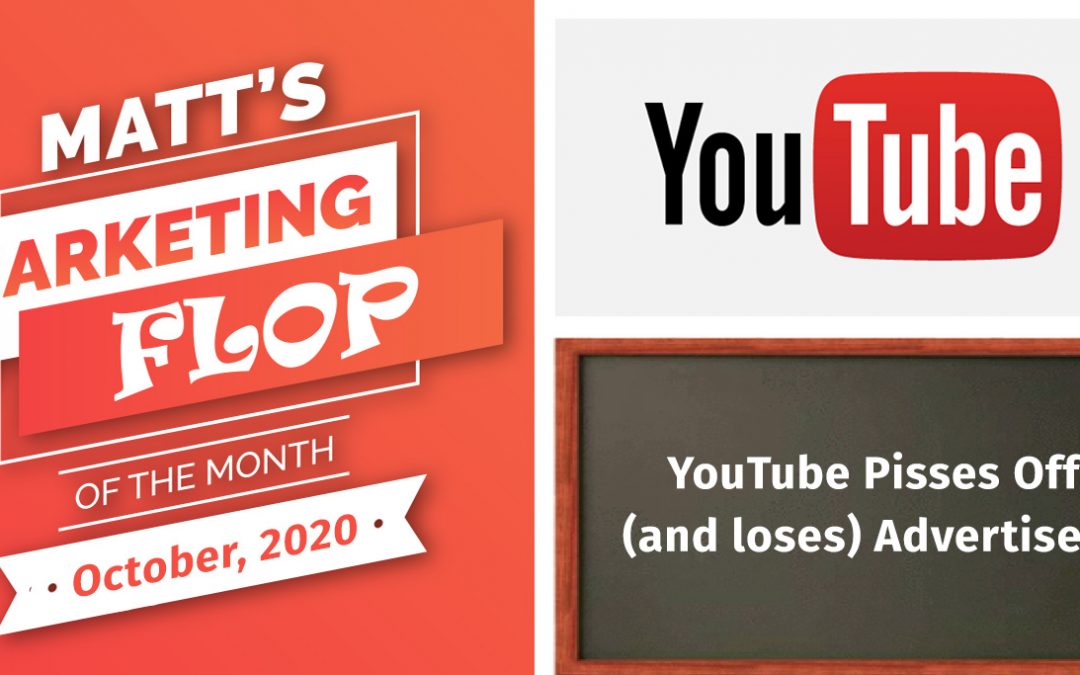[sb name="top-banner"]
[sb name="top-flops"]
Imagine browsing through Facebook, and seeing a video a friend of yours shared.
You click the link simply to see what it's all about, only to discover a racist, hateful tirade from some disturbed individual, and an ad for Walmart in the middle of the video.
How inappropriate is that?
PepsiCo, Walmart Stores, Starbucks, Verizon, AT&T, Johnson & Johnson, Etihad Airways, Marriott, Deliveroo. the U.K.'s Labour Party and other major companies have all pulled advertisements from YouTube after learning they were paired with videos promoting extremism, terrorism and other offensive topics, The New York Times reports.
Naturally, YouTube never wanted this to happen. Instead, this is the result of trying to match ads with markets despite what content they are viewing.
For example, if you're signed into Gmail, YouTube may know you're a 27 year old female, so they send you ads based on this fact.
However, if this woman watches a video of ISIS threatening to kill Americans, she may be served an ad for Pepsi just as easily as if she watched a video about mountain climbing or continuing her education.
You see, the majority ads have been ignoring the content, and just targeting markets.
Google depends mostly on automated programs to place ads in YouTube videos because the job is too much for humans to handle on their own.
After all, about 400 hours of video is now posted on YouTube each minute.
One can easily see how this poor effort toward moderating ad placement could infuriate top brands. Consumers quickly jumped to the Social Media pages of these brands to make it clear how "upset" they were in seeing their favorite brands advertising on the most despicable content on the web.
Some outraged advertisers are making it clear that they won't return to YouTube until they are certain Google has the situation under control. In case you didn't know, Google owns YouTube.
"The content with which we are being associated is appalling and completely against our company values," Walmart said in a statement about the incident.
RBC Capital Markets analyst Mark Mahaney said he expects the YouTube ad boycott to trim Alphabet's net revenue by about 2 percent this year (Alphabet owns Google).
In the pursuit of profits and scalability sometimes comes to perpetual loss of service and profitability.
But then again, if big companies wish to take giant leaps in modern advertising, they should be prepared for learning curves and the eventual irritated customer. The latter is much easier to come by than anything else, after all!
[sb name="newsletter"]
More Marketing Flops
Netflix: Prices Rise, Value Plunges
[sb name="top-banner"] [sb name="top-flops"] On July 12, 2011, Netflix CEO Reed Hastings announced a new pricing model separating its streaming service from DVD-rentals. The combined subscription that had previously cost $9.99 was split into two separate plans at...
Little Caesars: From #2 to #4 in Pizza
[sb name="top-banner"] [sb name="top-flops"] In 1994, Little Caesars was the #2 pizza chain in America (just behind Pizza Hut) with $2 billion in annual sales. In 2010, it was number four, with half as much revenue. Here is the breakdown of pizza market leaders in...
Get My Free Updates
Maverick was listed by Forbes as the #1 Consultant Who Avoids the B.S."

